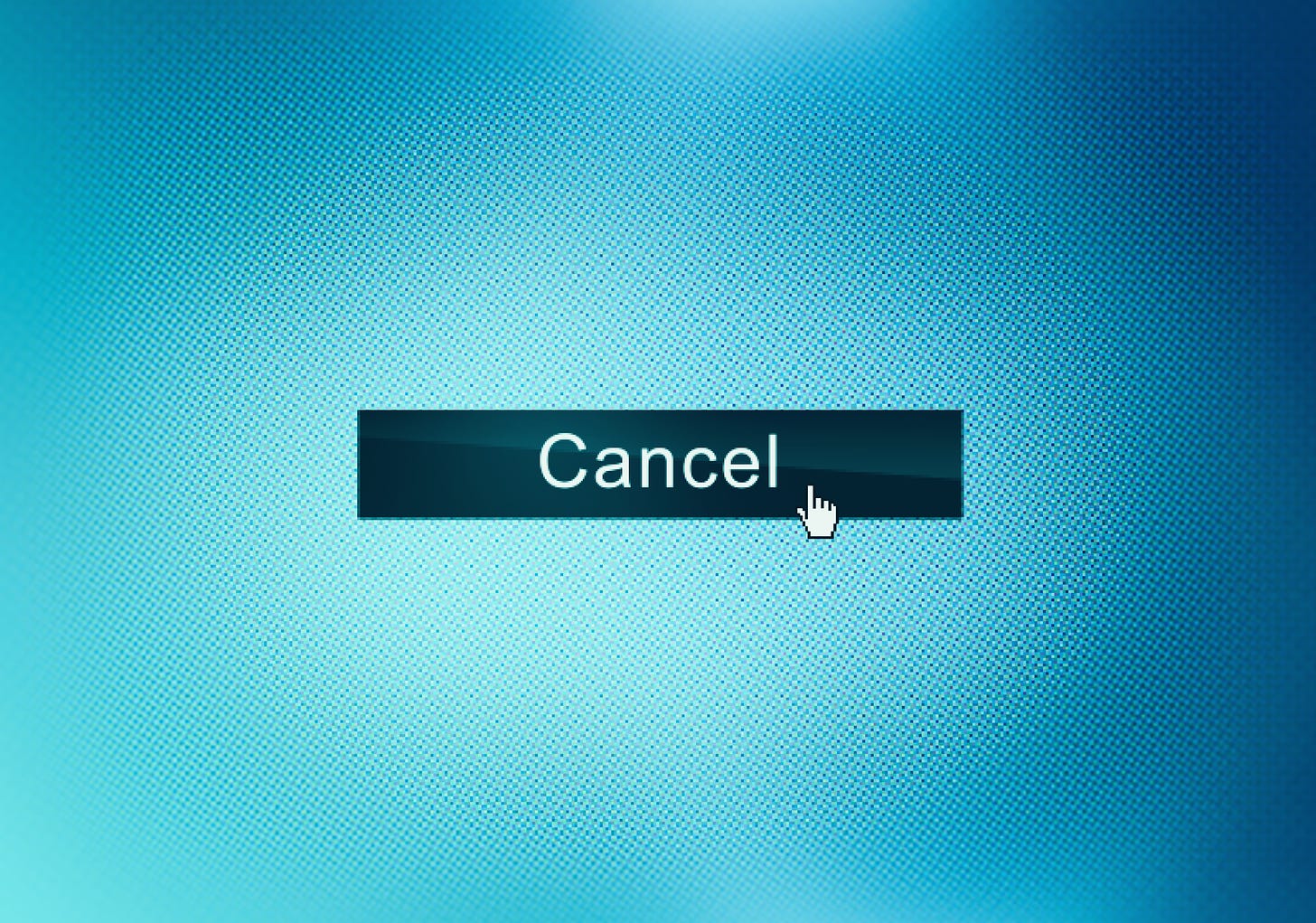The People ‘Cancel Culture’ Forgot
Who gets called canceled has become shorthand for whose lives and happiness matters
There are unspoken rules about who gets to be a victim of cancel culture. A United States senator who loses out on a book deal because of his role in a murderous insurrection? Cancel culture. A congresswoman desperately tries to find a place to hide so she’s not killed in said coup? That’s just dramatics.
The press reports on a certain Georgia representative being a dangerous conspiracy theorist? They’re a “cancel culture mob.” A journalist is arrested? No, sorry that’s a job risk.
The former president of the United States being banned from a social media site is a victim of cancel culture, but a child who dies by suicide after relentless online bullying is just an unfortunate statistic.
What’s the common thread? When the powerful lose out on privileges, it’s cancel culture—but when anyone is deprived of their rights, it’s just politics.
Conservatives have so thoroughly embedded this message to their followers that those in power don’t even have to lose out on anything before saying they’ve been victimized—the threat of consequences alone is enough to send them on a whining spree. (Just ask the child-like pundit with bestselling books and a top podcast who claimed he was being silenced after someone dared to merely criticize his racism.)
A related trick by cancel culture hucksters is convincing the public that marginalized people are actually the ones with power—especially when those marginalized people have the nerve to speak up.
That’s why a man who is accused of sexual harassment or abuse is ‘canceled’, while the women who accuse him are said to be taking part in a ‘witch hunt’. It doesn’t matter if those women left their school, jobs, or town because of their abuser’s behavior. In the eyes of cancel culture, they’re the real wrongdoer. They became the perpetrator as soon as they tried to hold someone more powerful than them—in this case, men—accountable.
Despite how ridiculous and clearly illogical this kind of thinking is, it’s also effective. Because who gets called ‘canceled’ has become shorthand for whose lives and happiness matters.
That’s why I often think about the people that cancel culture forgot. I think about the women who have lost their jobs because they complained about harassment, or the Black reporters who were banned from covering racial justice protests. No one called them canceled.
It’s not cancel culture when a feminist has to call off a speech because of bomb threats, or when the most banned book in American libraries is about a young trans girl.
That’s what makes cancel culture so dangerous—it’s about the narrowing of who we believe is deserving of empathy and who is worth fighting for. Most of all, though, it’s a conservative tool meant to make accountability seem like an injustice and injustice seem unremarkable.
And that should frighten us a lot more than a social media ban or a lost book deal.





This piece is so on point. Thank you for writing it, and CO-SIGNED.
Never thought of it this way, but now I will always think of it this way. A new perspective, voiced with clarity... works. 🏆